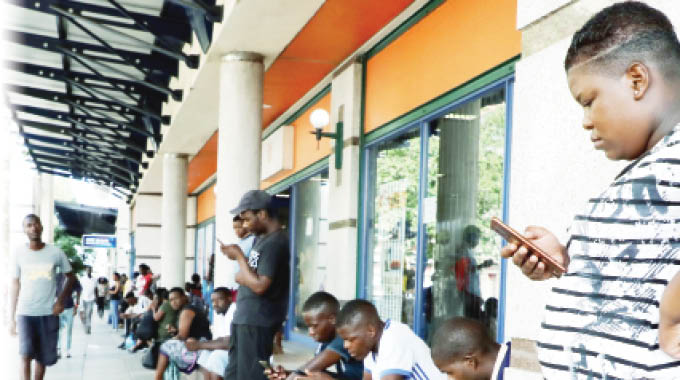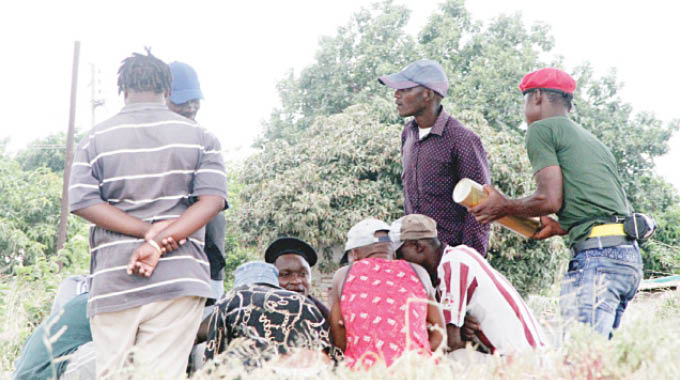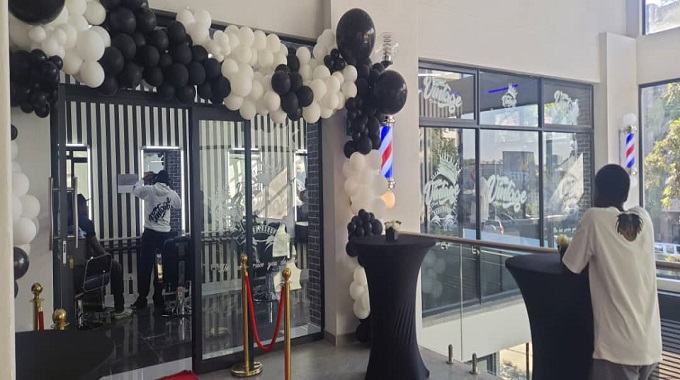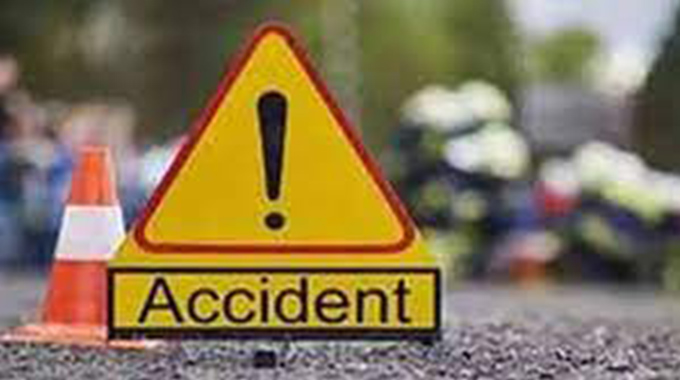Surviving threat of coronavirus in townships . . . Youths misinformed about the virus, rely on social media ‘facts’

Raymond Jaravaza, Showbiz Correspondent
HUDDLED in a circle with their eyes fixated on a gambling game, a young man rolls a dice and moments later, picks up a few coins from the ground and motions his friend to play.
The world is in the throes of a coronavirus pandemic but it is business as usual for the group of young men.
All that matters to them is their gambling game played on a pavement of a shop in Emakhandeni suburb.
The occasional glances are to check for the presence of the police while the dice takes centre stage – with money exchanging hands after every couple of minutes.
“That disease is killing those people in rich countries, why should I be worried about it,” says Sabelo Maseko, who has momentarily detached himself from the gambling and seems to be the only one with a slight interest in talking to Saturday Leisure about coronavirus.
No case of the virus has been recorded in Bulawayo, according to health officials but there is debate in communities on whether the country will cope with the coronavirus in the event of an outbreak.
The Saturday Leisure visited two townships in the City of Kings to find out how much residents know about the virus which has killed thousands of people worldwide, leaving countries in panic mode as they battle to contain its spread. The World Health Organisation (WHO) has declared coronavirus a pandemic.
“I read on WhatsApp (social media) that black people cannot be killed by the disease,” Maseko says confidently, oblivious of the fact that the information he read on social media is far from the truth.
Contrary to myths peddled on social media that black people are not affected by coronavirus, which young people like Maseko believe, Hollywood actor Idris Alba recently announced that he had tested positive for the virus.
Coronavirus knows no race or social standing, health experts have repeatedly warned.

Gamblers get down to business oblivious of ways the coronavirus is spread
Across the border in South Africa, the number of coronavirus cases continues to rise rapidly and there is fear it’s only a matter of time before Zimbabwe is hit by an outbreak.
Northern neighbour Zambia has also recorded cases of the virus.
“I fear for my children who are in Johannesburg. I spoke to my daughter on the phone on Monday and asked her to come back home together with her brothers but she said they are afraid of losing their jobs,” said Gogo MaNyathi of Njube suburb.
Emakhandeni and Njube suburbs are separated by Luveve Road, the busy main road that stretches for kilometres from the townships into the city centre.
Gogo MaNyathi says she cannot afford to buy detergents such as hand washes and sanitisers that health officials recommend for use as part of measures to improve personal hygiene.
“Basic commodities like mealie meal, sugar and bread are already very costly and expecting me to buy those expensive chemicals (hand sanitisers) is just asking for too much.
“Maybe my children will send them from South Africa at the end of the month,” said the grandmother of six.
The South African government has banned large gatherings, blocked foreign visitors and closed schools as part of measures to curb the spread of the virus. Back home, the Government has banned gatherings of more than 100 people and advised members of the public to cancel unnecessary travel.
But it’s the decision to delay the closing of schools that appears to have riled parents and teachers alike.
“Why did Government keep schools open for so long? It’s easier to monitor my grandchildren when they are here at home. I can’t control what happens at school so they might get the virus from other children,” said Gogo MaNyathi.
Government has since responded to parents’ concerns and ordered schools and tertiary institutions ( colleges, polytechnics and universities) to close on Tuesday.
Mr Joseph Maturo of Njube suburb also says he has no money to buy hand sanitisers.
“I’m a painter and sometimes do odd jobs like cutting trees for my clients who live in Hillside and Burnside and I barely make enough money to buy food. Where am I supposed to get money to buy sanitisers and masks?
“If the virus comes here, we will all die,” says Mr Maturo.
Suspected cases of coronavirus in Bulawayo are referred to Thorngrove Hospital.
“I heard in the news on radio that people must keep a distance of one metre apart, but how is that possible for those of us who use Zupco buses to go to work? Have you seen how many people will be on that bus?” asks Mr Maturo.
Mr Maturo said he does not know much about the virus except for the little he has heard on radio yet
youths such as Maseko seem to know nothing at all regarding the pandemic.
It is therefore such youths that health officials must be concerned about.
With so much misinformation and myths flying around social media, the major source of information for youths, it’s imperative for Government to step up awareness campaigns in both urban and rural areas.
A city doctor told this publication that medical professionals in private practice have been ordered by Government not to handle any suspected cases of coronavirus. The doctor said all suspected cases of the virus will be handled by public health institutions such as Wilkins Hospital in Harare and Thorngrove Hospital in Bulawayo.
“We have been ordered not deal with infected patients but instead refer them to public institutions where they will be isolated from the public,” said the doctor who requested anonymity.
For members of the public who suspect that they may have symptoms of the virus, the Bulawayo City Council has availed specialised ambulances and crews that can be contacted on the municipality’s hotline number 71717. Testing services are free.
People that have been in contact with individuals that have a history of visiting coronavirus high risk countries have also been advised to seek medical assistance at the slightest suspicion of the virus. – @RaymondJaravaza.










Comments